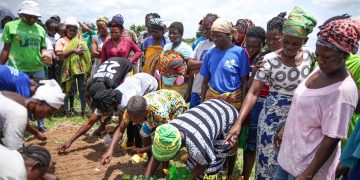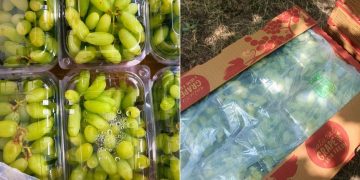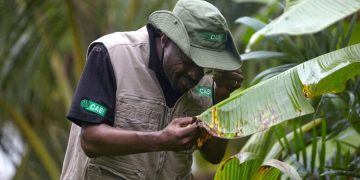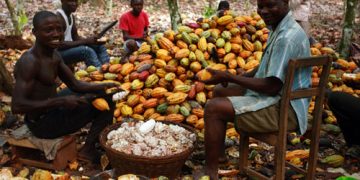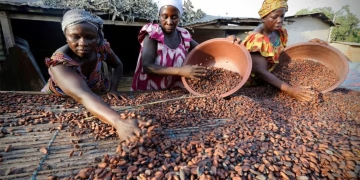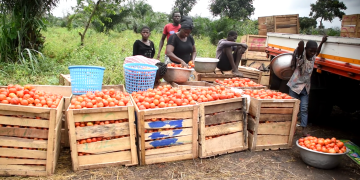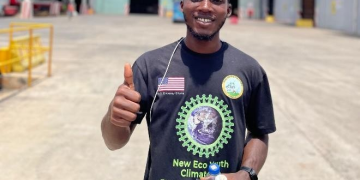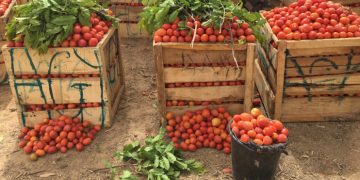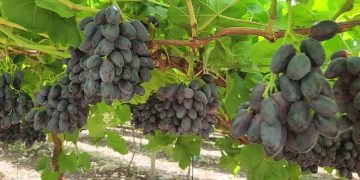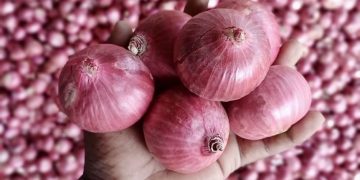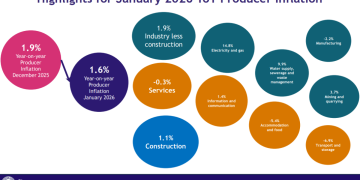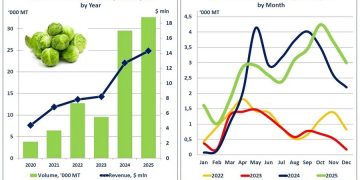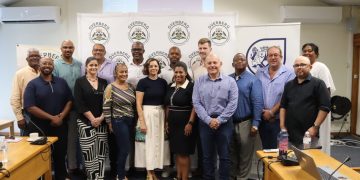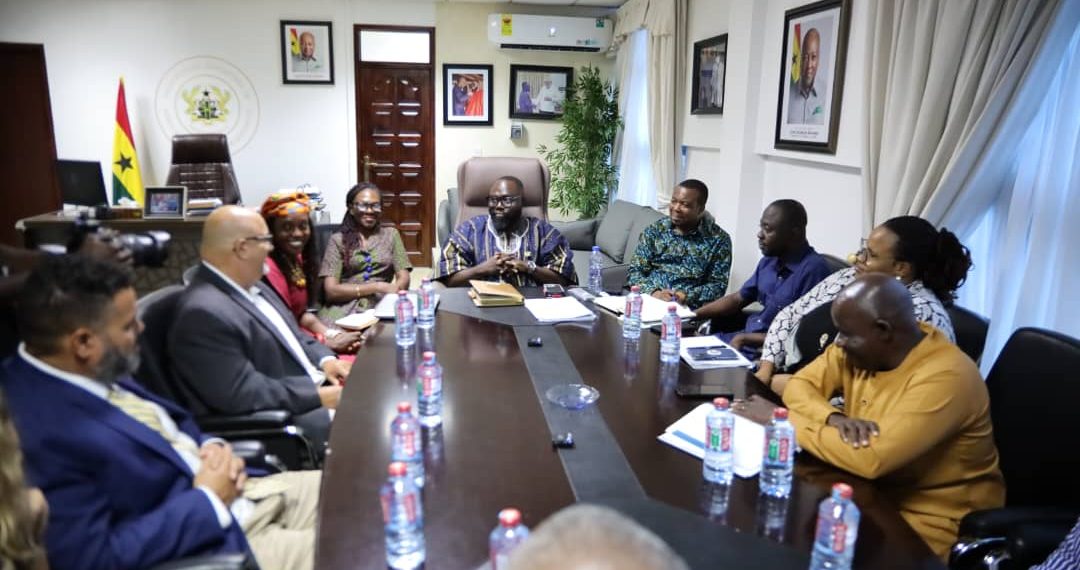In a bid to deepen agricultural partnerships and foster transformative educational opportunities, members of the Ghana-Nebraska Agribusiness Growth Relations Chamber (GNEBCham,) paid a courtesy visit to the Office of the Director of Presidential Initiatives in Agriculture and Agribusiness at the Presidency in Accra.
The delegation was led by, Co-Founder of GNEBCham, Alberta Nana Akyaa Akosa, former Nebraska State Senators Ken Schilz and Justin Wayne, and agribusiness strategist Jess Goldon , alongside other key members of the Chamber.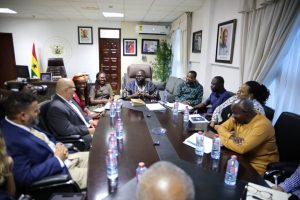
They engaged in a robust dialogue with Dr. Peter Boamoah Otokunor, Director of the Presidential Initiatives in Agriculture and Agribusiness, on strengthening Ghana-Nebraska collaboration in agriculture, education, and innovation.
This engagement formed a central part of the chamber’s broader mission to drive strategic cross-border initiatives aimed at enhancing agribusiness development and innovation.
At the heart of the discussions was the Ghana-Nebraska Agricultural Future Pathway Student Exchange Program,a forward-thinking initiative designed to facilitate immersive, cross-cultural learning experiences for students in both regions.
Once operationalized, the program will provide exchange programs opportunities between students in Ghana and the university of Nebraska , It aims to bridge knowledge gaps, encourage technology transfer, and empower a new generation of agricultural leaders to transform food systems across Ghana and Nebraska.
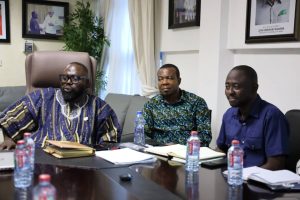
Welcoming the delegation, Dr. Peter Boamoah Otokunor reaffirmed the Presidency’s strong commitment to youth-focused agricultural development and to supporting the exchange initiative through policy alignment and collaboration. He highlighted Nebraska’s impressive track record in agricultural innovation as a strategic advantage for the partnership.
“Nebraska’s relevant potential in agriculture makes them a great alliance for our agricultural growth,” he said. “In areas such as mechanization, agritech, and AI support, there is much we can learn from one another. We must therefore devise every way possible to make this program sustainable and impactful for both Ghana and Nebraska.”
Former Senator Ken Schilz emphasized the importance of building a solid support system around the program, noting the long-term value of fostering institutional and business relationships between Ghanaian schools and Nebraska’s agricultural stakeholders.
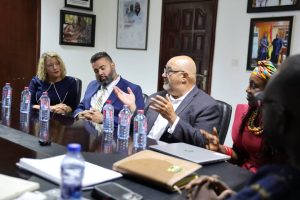
‘’We envision a future where graduates of this program return to their countries not only with knowledge, but with networks, mentorship, and a clear understanding of how to apply modern agricultural practices in practical, scalable ways. This is about developing a shared ecosystem of innovation, and it starts with investing in our youth.”
Senator Justin Wayne proposed the creation of a reintegration framework that ensures Ghanaian exchange students return equipped and empowered to transfer their knowledge and skills into their local agricultural communities. “The real impact of this program will be seen when these students return and become catalysts of change in Ghana’s agrifood systems,” he noted.
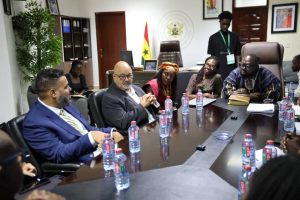
Adding to the conversation, Jess Goldon spoke on the transformative impact of AI in Nebraska’s agriculture sector, where it is currently enhancing decision-making, crop monitoring, and yield management. He encouraged Ghana to adopt similar technologies to drive innovation and competitiveness, stressing the importance of inclusive digital transformation across global food systems.
For her part, Alberta Nana Akyaa Akosa, Executive Director of Agrihouse Foundation and Co-Founder of GNEBCHAM, expressed strong optimism about the potential of the exchange initiative to spark long-term, inclusive agricultural transformation.
“This initiative is about more than just travel or training, it is about knowledge equity, opportunity creation, and building a new generation of agrifood leaders who understand the global value chain,” she stated. “Through this program, we hope to open doors for young Ghanaians to gain firsthand exposure to advanced agricultural practices and innovation systems. In turn, we are inviting Nebraska to engage with the rich agricultural potential and talents in Ghana. It’s a win-win for the future of food systems in both regions.”
The meeting concluded with a shared commitment to formalize the necessary frameworks that will give rise to a dynamic and mutually beneficial partnership between Ghana and Nebraska—one that nurtures innovation, empowers youth, and strengthens agrifood systems across continents.

